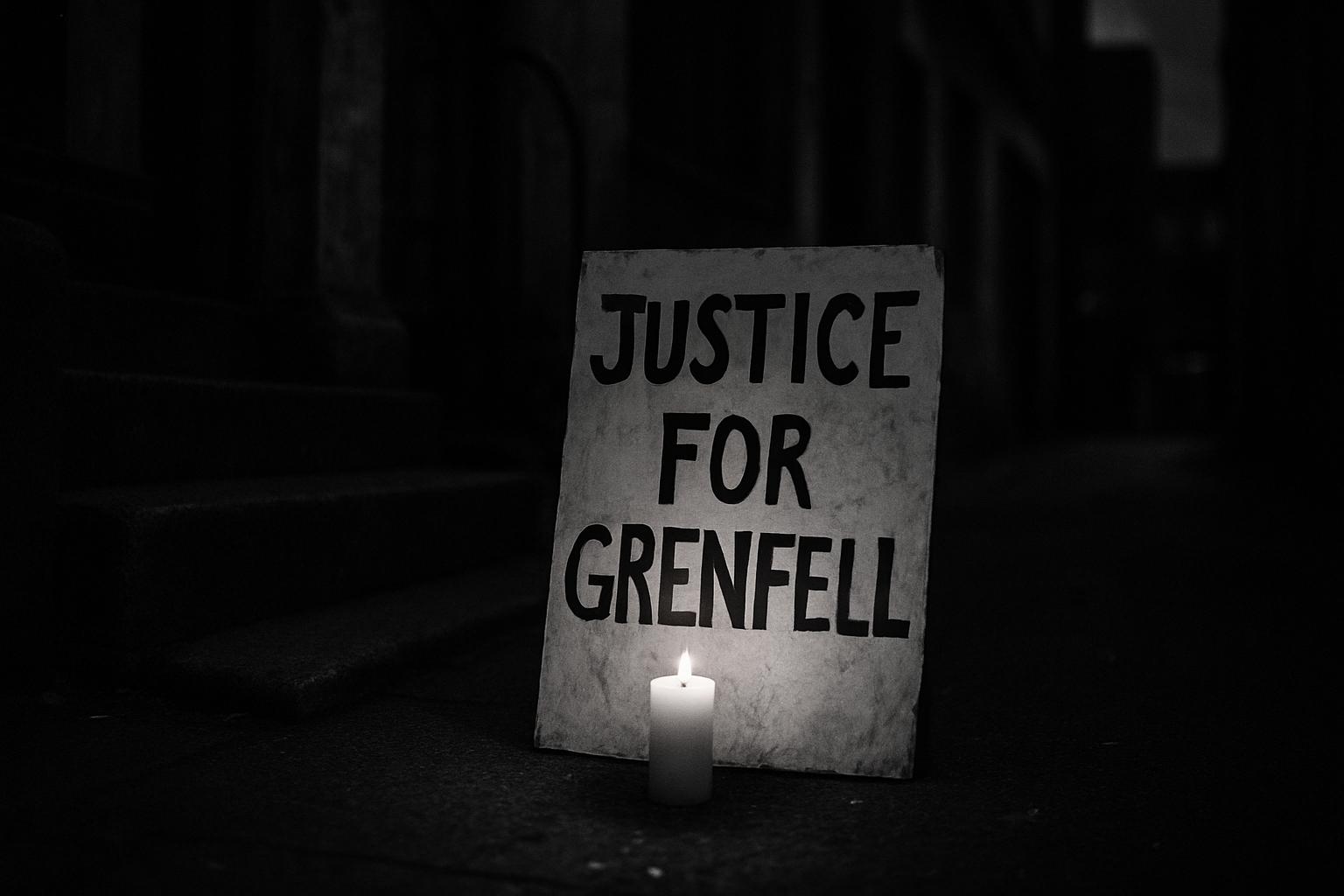Marcio Gomes, a bereaved father whose son Logan was stillborn following the devastating Grenfell Tower fire in 2017, is resolute in believing that the newly released Netflix documentary, "Grenfell: Uncovered," should serve as a catalyst for change in the ongoing struggle for justice. He asserts that the documentary, which premiered on June 20, is pivotal in ensuring that the tragic circumstances surrounding the incident—and the systemic failures that allowed it to happen—are not forgotten or ignored.
The Grenfell fire resulted in the loss of 72 lives, a tragedy that a recent independent inquiry concluded could have been prevented if not for "decades of failure" at multiple levels of government and the construction industry. The inquiry's final report detailed how deficiencies in fire safety protocols, particularly concerning the use of highly flammable cladding materials, contributed to the disaster. It highlighted a troubling pattern of negligence among entities such as the Ministry of Housing, local authorities, and the manufacturers involved, including Arconic, Kingspan, and Celotex. Each of these companies has faced severe criticism for prioritising profits over human lives and engaging in deceptive practices regarding the safety of their products.
In the lead-up to the documentary's release, Gomes expressed hope that it would resonate with audiences and spark a renewed call for accountability. "Ultimately, I’m hoping that people understand that this was no accident. This was very much avoidable," he remarked in an interview. He urged the public, particularly in the UK, to recognise the broader implications of the tragedy, stating, “These companies have a duty of care but they’ve ignored it completely.” His passionate plea emphasizes that the fight for justice is not solely about his personal loss, but an urgent issue that should concern everyone.
The documentary comes during a period of increasing scrutiny of the companies involved. The inquiry's report revealed that Arconic deliberately misled consumers about the dangers of its cladding, while Kingspan and Celotex engaged in practices that created a "false market" for unsafe insulation materials. In February, the Cabinet Office revealed that seven companies, including Arconic and Kingspan, are potentially facing bans from public contracts due to misconduct related to the tragedy. Meanwhile, investigations by the government are ongoing, aiming to assess whether any of these firms have engaged in actions warranting legal penalties.
Despite the sombre context, Gomes remains hopeful that the documentary can galvanise public action, encouraging people to write to their MPs and advocate for the removal of unsafe cladding from other buildings. “Knowing that these companies…are still making record profits and still working globally is appalling," he insisted, asserting that the lack of prosecutions after eight years signifies a failure of justice. He passionately urges a collective response, advocating for actions that resonate with the gravity of the situation—the removal of harmful materials and stopping the companies' unethical practices.
As the eighth anniversary of the Grenfell fire approaches, criticism has also been directed at plans to demolish the tower itself—a decision met with discontent from bereaved families who feel their perspectives were overlooked. The inquiries into the fire and the construction practices that led to it continue, with potential criminal proceedings anticipated as investigations deepen into the roles of various companies and individuals involved.
In this climate, the release of the documentary stands as a stark reminder of the lives lost and the urgent reforms needed to prevent future tragedies. While the inquiry's findings and the documentary seek to expose the systemic failures and promote accountability, the journey towards justice for the victims of Grenfell is far from over.
📌 Reference Map:
- Paragraph 1 – [1], [4]
- Paragraph 2 – [1], [2], [5]
- Paragraph 3 – [3], [6]
- Paragraph 4 – [1], [5]
- Paragraph 5 – [1], [5]
- Paragraph 6 – [1], [2], [4]
- Paragraph 7 – [1], [6]
Source: Noah Wire Services
